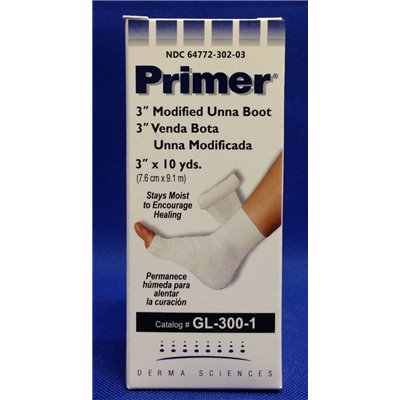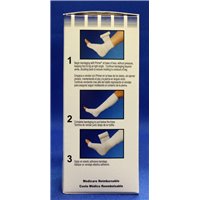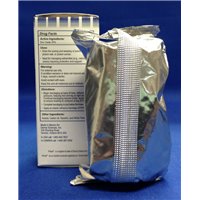UNNA'S BOOT DRESSING 3INX10YD EACH
Item #:
2773
Product Info
DERMA SCIENCES
DER GL3001
6477230203
DERMA SCIENCES Primer Modified Unna Boot is a non-raveling gauze bandage evenly impregnated with a non-hardening zinc oxide paste. The 3" x 10 yds. bandage is rolled and packaged in an individual vacuum-seal pouch. The Primer Unna Boot is used in ambulatory management of venous stasis leg ulcers. It is also ideal for managing lymphatic edema, sprains, strains, minor fractures, thrombophlebitis and skin grafts on burn wounds. Venous stasis leg ulcers generally occur as a result of a breakdown in the functioning of valves between MAJOR veins in the leg. With support from exterior compression combined with ambulation, the muscles and veins clear up the stagnant area that erupts into ulcers. Mobility is important for the ambulatory management of venous stasis ulcers and also for the protection of other healing wounds. The moisture and comfort make it an ideal first layer of this bandaging method. Sold by the roll. To receive a case order 12.
DERMA SCIENCES Primer Modified Unna Boot is a non-raveling gauze bandage evenly impregnated with a non-hardening zinc oxide paste. The 3" x 10 yds. bandage is rolled and packaged in an individual vacuum-seal pouch. The Primer Unna Boot is used in ambulatory management of venous stasis leg ulcers. It is also ideal for managing lymphatic edema, sprains, strains, minor fractures, thrombophlebitis and skin grafts on burn wounds. Venous stasis leg ulcers generally occur as a result of a breakdown in the functioning of valves between MAJOR veins in the leg. With support from exterior compression combined with ambulation, the muscles and veins clear up the stagnant area that erupts into ulcers. Mobility is important for the ambulatory management of venous stasis ulcers and also for the protection of other healing wounds. The moisture and comfort make it an ideal first layer of this bandaging method. Sold by the roll. To receive a case order 12.





